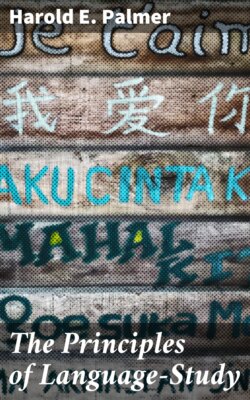Читать книгу The Principles of Language-Study - Harold E. Palmer - Страница 5
На сайте Литреса книга снята с продажи.
2. Our Studial Capacities and how to use them
ОглавлениеTable of Contents
In addition to certain spontaneous capacities, we possess what we may term ‘studial’ capacities for language-acquisition. These must be utilized when we learn how to read and write a language, and also when we wish to learn forms of language not actually used in everyday speech (i.e. the literary, oratorical, or ceremonious forms). The methods by which we utilize these capacities are generally characterized by conscious work (such as analysis and synthesis) and by conversion, i.e. converting written into spoken (reading aloud), converting spoken into written (dictation), converting from one language into another (translation), or converting one grammatical form into another (conjugation, declension, etc.). All exercises requiring the use of the eyes and the hand are of the studial order, as are also those connected with accidence and derivation.
Most of those forms of work by which we utilize or adapt habits which we acquired previously while learning some other language (generally the mother-tongue) are more or less studial forms of work.
Most language-learners at the present day are found to make an almost exclusive use of their studial capacities, and in doing so use methods which are more or less unnatural.
